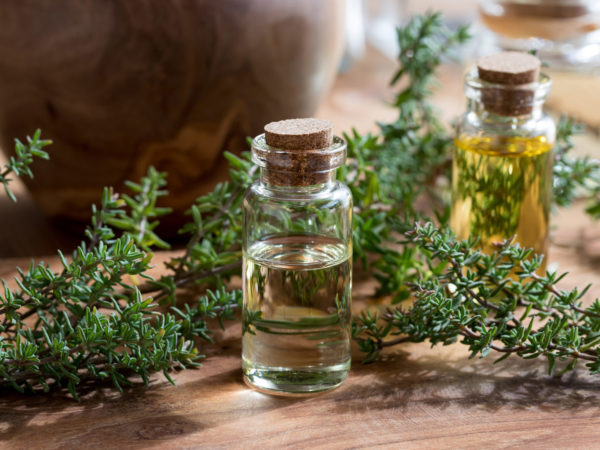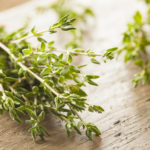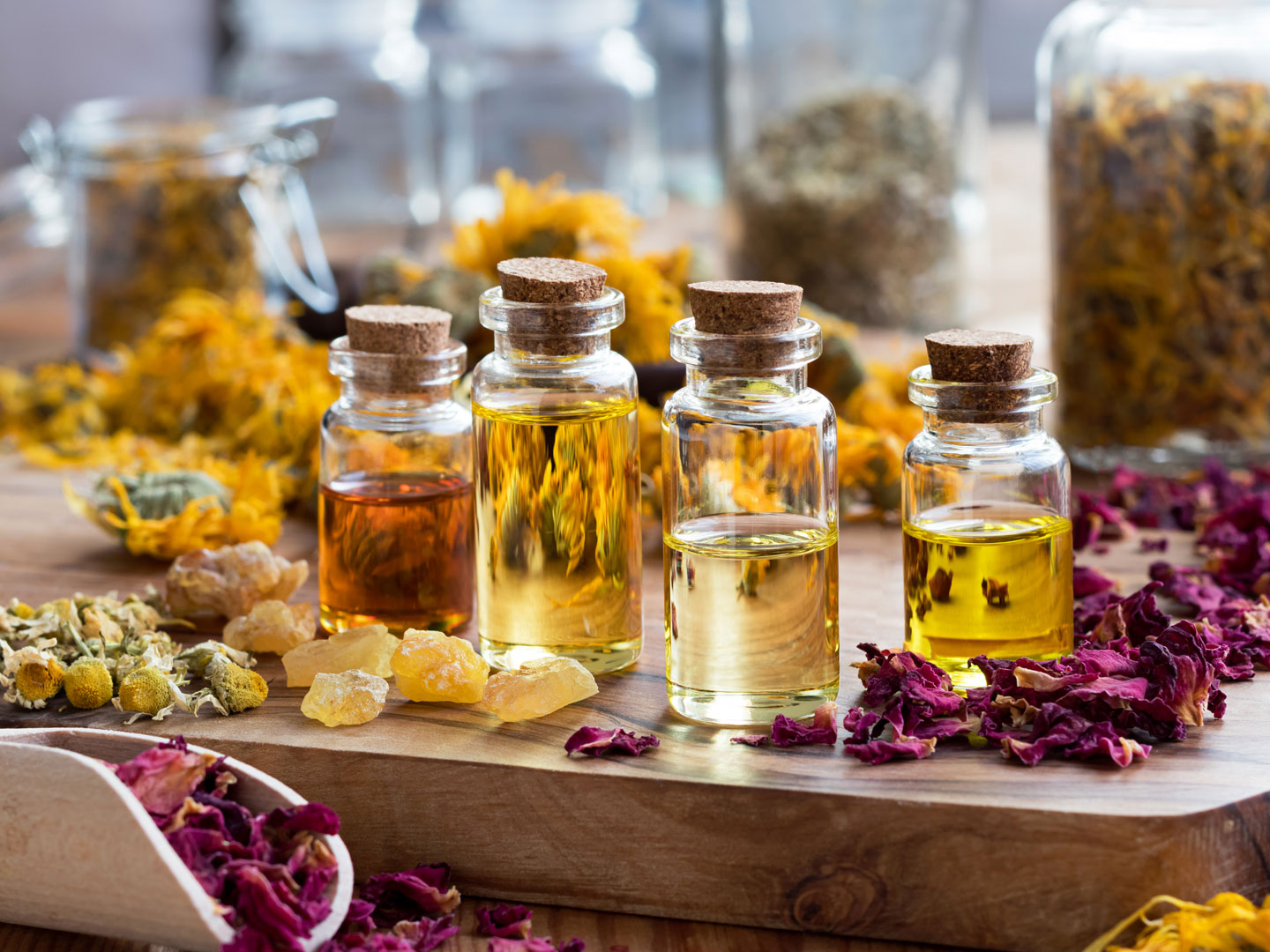Essential Oils: Thyme Oil

Thyme oil which comes the thyme plant (Thymus vulgaris) is a perennial herb with a long history of use going back to ancient Egypt and Greece for purposes ranging from embalming and warding off evil spirits to gaining courage. Thyme is native to Asia, the Mediterranean region and southern Europe.
Thyme has antibacterial and antifungal properties, Thymol, a primary constituent of thyme oil, has potent antioxidant activity and may help prevent tooth decay as a mouthwash ingredient. (It is used in many commercial mouthwashes.) Thyme essential oil is added to soaps, deodorants, and insect repellents. It is also antiseptic.
Thyme Oil Uses
Thyme oil may help ease chest congestion, sore throat, gas, and indigestion. It is a mild diuretic and appetite stimulant.
- Treatment of cuts and wounds: Since thyme has antiseptic properties, the oil can be applied to minor cuts and wounds. As an antifungal, it can help treat toenail fungus.
- Baldness: Some research suggests that combined with lavender, rosemary and cedarwood oils, thyme oil may improve hair growth, although it can take seven months to work, and success is not guaranteed.
- Infections: Thyme oil can be used to treat bacterial and fungal infections in the ears.
- Colds and bronchitis: Thyme oil can help treat respiratory symptoms, including congestion, cough, and sneezing. You can diffuse the oil in a steamer for direct relief.
- Thrush: Thyme essential oil has been shown to help kill the fungus (Candida albicans) that causes oral thrush.
Cautions:
Thyme is believed to be generally very safe. However, avoid using large amounts if you are pregnant or breastfeeding. Due to thyme’s blood thinning effects, if you’re scheduled for surgery avoid thyme oil for at least two weeks before the procedure. If you’re allergic to oregano or other plants in the mint family, you also may react to thyme. Because it can act like estrogen in the body, avoid the oil if you have any condition that might be worsened by estrogen exposure. While thyme oil is considered safe for application to skin, it can cause irritation in some people. Not enough information is available to be sure that thyme oil is safe for children when taken by mouth or used on the skin.
Thyme Oil For Household Use
Research suggests that thyme oil may help eliminate low concentrations of mold and may help preserve foods against foodborne bacteria.
Dr. Weil’s View On Thyme Oil
hyme can play an important role in treating mild health concerns. It can help to suppress coughs and is a useful antifungal agent. I like to use fresh thyme in cooking. It is one of the easiest herbs to grow.
Source:
Natural Medicines Comprehensive Data Base, “Thyme”, webmd.com/vitamins/ai/ingredientmono-823/thyme













